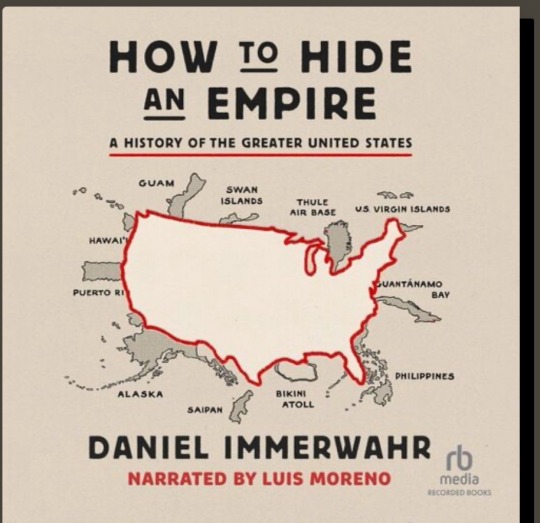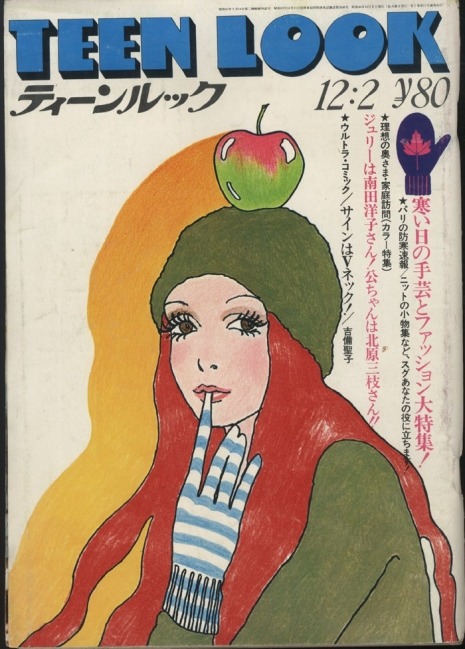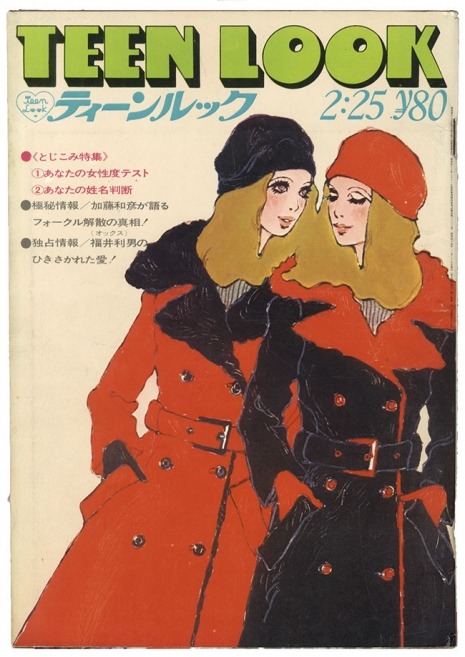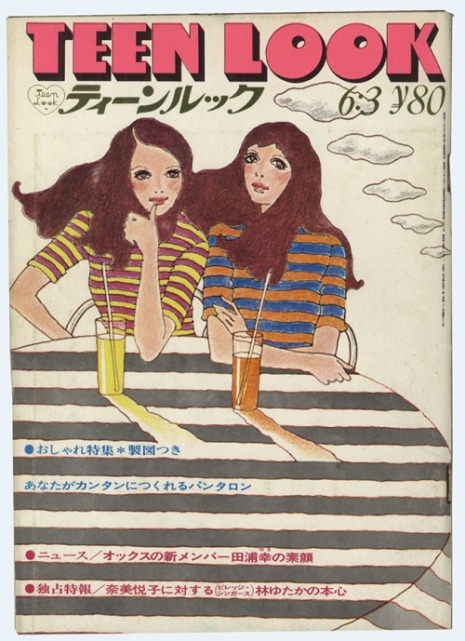#pop history
Explore tagged Tumblr posts
Text
No
I ranted about this in the tags of that last post but I'm heated now
I fucking hate the "history hates lovers" meme
First of all historians are not a monolith of a opinions anyway
Second most modern historians are not going to be denying that a historical figure who clearly had same sex relationships (or gender non conformity of some level) didn't
Partly because WE HAVE QUEER HISTORIANS
But also modern queer terms and concepts cannot be shoved onto historical figures. Concepts of sexuality and gender has varied WILDLY in the past. Even what we consider cishet concepts of gender and sexuality has not been consistent throughout history and culture
ALSO that meme is extremely binary in terms of both sexuality and gender
There is an assumption from a lot of people that if someone historical had a same gender relationship that means any heterosexual relationship is either for show or comphet. And that any seemingly same sex relationship = same gender relationship when it could be a lot more complicated
Which as a bisexual genderqueer person pisses me the fuck off
No, I'm not claiming that every historical person who was married and had relationships with people of the same gender is bisexual or that any person with gender non conformity was genderqueer because that would be anachronistic and inaccurate
But I'm also not going to assume to know their feelings towards their spouses or gender unless I have evidence
I can't point at any individual after a certain point and say "this person was queer" or "this person was trans" or anything like that
Because those terms aren't things they would have used
But I can say "this person is a part of queer history." And/or "this person is a part of trans history"
Calling a historical person queer is a lot like calling say Boudica was English because she lived in what is now England
She is a part of English history in the history of this landscape and what shaped this part of the world but she was not English
It's the same damn thing
Get a better fucking meme
Ok soap box put away
#history#rant#queer history#pop history#is almost as fucked as pop psychology#just in how inaccurate it is
42 notes
·
View notes
Note
Would you say that reading popular history is a good entryway into academic history? Not necessarily as a scholar but also as an interested layperson who's interested in the subject
Reading Pop[ular] History
Sure, it is. As is historical fiction … as long as it’s well-done.
That’s the crux. Some pop history is quite good. Some…not so much. The problem for the average layperson is figuring out which is which. Who can I trust? (Near the end are some pragmatic tips to help you answer that question.)
Publishing houses want to sell books. This is different from academic presses. The latter also want to sell books but their (acceptable) profit margins are lower and they make their money via textbooks. Peer-reviewed academic works are published for status/reputation. They don’t expect those books to make money. In fact, academic monographs typically lose money—yes even at the exorbitant prices they charge. This is (one reason) your textbooks cost so much.*
By contrast, the reason (regular) publishers put out pop history IS to make money. Of course they want those books to be well-reviewed, but because it helps sales. So, they’re interested in signing authors they consider to be good writers—people who can spin an engaging (non-fiction) story. That may not be the top experts in the field.
In academia, the focus is on quality ideas, which (alas) may be conveyed in rather turgid, passive-voice prose. Sure, good scholars can also be good writers, but I fear it’s more often the exception than the rule. In Alexander studies, my mentor-advisor, Gene Borza, also happened to be a good writer. So is Beth Carney. So is Ed Anson. One of the best, however, was Peter Green. I may not always agree with his scholarship, but the man could write. He penned not only academic history, but also essays (I highly recommend both In the Shadow of the Parthenon and Classical Bearings), as well as historical fiction. His biography on Alexander is still widely read, and his MONSTER tome Alexander to Actium did what very, very few academic books do: it made money for University of Cal Press. Paul Cartledge (who also wrote a bio on ATG) is another such. I don’t think he’s as good as Peter, but he’s up there in his ability to turn a memorable phrase and get across his ideas to the average reader. It’s why he gets tapped to write books outside his field of specialization. There are a small passel of such academic pop history authors: Adrian Goldsworthy (who also wrote on ATG), James Romm (who wrote on ATG’s Successors), Robin Waterfield, Mary Beard, Michael Grant, etc. All of them are legit scholars who turn out books that aren’t necessarily in their specialization.
By specialization, I mean the field they publish in academically. We all teach classes on topics we wouldn’t dare to publish in for our peers. Pop history is closer to teaching classes, in that regard. For one thing, specializations in academic publishing get quite narrow, and pop history tends to be on broader topics. Take my own current academic book. Sure, a few of you may look forward to a work on Hephaistion (and Krateros), but the average fan of history perusing shelves for their next hit doesn’t even know who they ARE. They won’t pick up a pop history book about them (unless—maybe—the title is “sexy” enough to sell it).
When it comes to pop history, publishers fear that knowing too much about a field interferes with one’s ability to write for a non-specialist audience. That applies to textbooks too. Ergo, publishers sometimes solicit books from “specialist-adjacent” people. Carol Thomas’s Alexander the Great and His World is of that type. Carol is a specialist in Early Iron Age Greece, but she knows/is friends with a number of Macedoniasts as well as Greek archaeologists, so Blackwell invited her to write that book. She approached it with due care and humility. (I remember her preparing for it, asking Gene and others lots of questions.)
Paul Cartledge’s bio of Alexander runs along those lines. His real specialization is Sparta, but he’s written some general books on Greek history that sold well. I don’t know if he was asked to write the ATG book, but it’s made money for Random House. I don’t agree with swathes of it, but his take follows in the footsteps of Green and Bosworth, who are Macedoniasts. It’s far from a bad book, comparatively. Even so, I wouldn’t assign it as a textbook in my ATG class, precisely because I don’t agree with chunks. I’ve been using Lindsay Adams’ Alexander the Great: Legacy of a Conqueror or Brian Bosworth’s (now old) Conquest and Empire: the Reign of Alexander the Great, or Ed Anson’s Alexander the Great: Themes and Issues. Considering Hugh Bowden’s Alexander the Great: a Very Short Introduction too. Part of my choice lies with the fact those four are Macedoniasts and publish in the field, but I wouldn’t use Ian Worthington’s books on ATG, although he’s also a Macedoniast, nor Peter Green’s, nor NGL Hammond’s either. My views differ from theirs as either too negative or (Hammond) overly positive.
Back to my point. Cartledge may not be a Macedoniast but at least he’s a Greek historian and works in the right era. By contrast, Adrian Goldsworthy (Philip and Alexander) is further afield because not only is he not a Macedoniast, he’s a specialist on Rome. What of his book I’ve looked at, I found a bit dated compared to where most current scholarship stands. Yet he’s still a professional historian. Philip Freeman is similar to Goldsworthy. He’s a real scholar, if not a specialist on Alexander. He works in Classical Philology and Celtic Languages. Anthony Everitt isn’t even in Classics, but (European) visual and performing arts. Nonetheless, those authors have written books on significant ancient figures that sold well, so publishers trust they can write a selling nonfiction book.
All that helps to explain why pop history may not necessarily reflect the most recent work in the field.
Also, sometimes an author will go for the “sexy” idea because they think (not without cause) that it’ll sell better/appeal more. They’ll justify it with, “Well, some scholars did say that….” I ran into this excuse a lot when working with the Netflix people. If they wanted to go in a direction I disliked—such as Olympias’s putative involvement in Philip’s death—their reason/excuse was, “Well, the ancient sources say that and other scholars believe it.”
Five Tips to Check the Quality of Your Pop History Book
(all the below assume you don’t have a convenient specialist friend to ask…)
First, look at the publication date. History research can move quickly. If the book is more than 20 years old, it may be stale. Yet copyright date isn’t always the kiss of death; I still recommend Brian Bosworth’s 1988 Conquest and Empire on Alexander. Yes, a few things are out-of-date, but it’s generally an even-handed intro to his career, despite being 35+ years old. Nonetheless, if you know nothing about a field, older books might not be the best place to start.
Second, research the author. Who are they? Are they an academic at all? If their bio just says “historian,” they might have nothing higher than a BA/BS. Assuming they are a professional historian, do they publish academically in the subfield they’re writing about? If not, is it at least in the broader field? If not the broader field, is it adjacent? The further an author’s academic work from the subject matter, the more likely you’re getting either stale or limited research.
Third, watch out for sensationalist language in blurbs—even if the author is a specialist. For instance, the blurb for Ian Worthington’s 2004 Alexander the Great: Man and God, says:
Alexander the Great conquered territories on a superhuman scale and established an empire that stretched from Greece to India. He spread Greek culture and education throughout his empire, and was worshipped as a living god by many of his subjects. But how great is a leader responsible for the deaths on tens of thousands of people? A ruler who prefers constant warring to administering the peace? A man who believed he was a god, who murdered his friends, and recklessly put his soldiers lives at risk? Ian Worthington delves into Alexander's successes and failures, his paranoia, the murders he engineered, his megalomania, and his constant drinking. It presents a king corrupted by power and who, for his own personal ends, sacrificed the empire his father had fought to establish.
Put that puppy down! While authors don’t usually write their own book blurbs, they approve them, and if the first paragraph asks some legit (if harsh) questions, the second paragraph suggests a book with an extreme view. Depending on the subject, it might be justified, but I’m typically suspect of sensationalist history. 😉
Fourth, if you can, flip to the bibliography. How extensive is it? How recent are the entries? Does it include not just monographs (books), but also articles/book chapters? Does it include articles that aren’t in English? Possibly the author was told to submit a limited bibliography, but a thin, mostly book (no/few articles)** biblio more likely suggests the writer lacks the background needed to cover the topic well. (Some pop history books don’t even have a bibliography, which I also consider a red flag.)
Last, read a few reviews, and not on Goodreads or Amazon (although some reviews on those sites are fine). How is the book received, particularly by reviewers who might know a thing or three about the topic? If no reviews are from academics or specialists, steer clear. I don’t care of Oprah likes it. Ha.
The best pop history (in terms of historical accuracy) is rarely the most popular, in terms of sales, for the simple reason that real history is messy and complicated. The casual reader usually wants something simpler. Yet if you’re serious about learning a topic, you do want something messy and complicated! E.g., with nuance.
So yes, pop history can be well-done and a perfectly valid place for the interested-but-discerning non-specialist to begin. If I believed it wasn’t, I wouldn’t be writing on Tumblr. 😉
And who knows, maybe I’ll sit down someday to write my own pop history take on Alexander.
——————
* Color illustrations and higher-quality paper are some others causes for high costs. Paper in general is expensive. But there’s still a mark-up to cover the production-cost losses incurred by purely academic books, most of which are sold to libraries.
** In many fields of history, especially ancient history, cutting edge research appears first in ARTICLE form and may never even make it to a book. Researchers who utilize only books (monographs) are therefore missing a lot.
#asks#pop history#how to evaluate pop history#is pop history good history?#academic publishing#non-fiction publishing#scholars writing pop history#alexander the great#pop history on alexander the great
15 notes
·
View notes
Note
Misinformation I burned to death several times as a teenager due to the long skirts I wore
sounds legit
just like how I've literally snapped in half while wearing a corset, every single time, and now my midsection is held together by a complex network of zipties
(in all seriousness, before anyone starts in with the Um Actuallys, yes your clothing can catch fire if it's too near an open flame. but I seldom see anyone talking about the 18th- or 19th-century fire risks of frock coats, tailcoats, capes, long sleeves, long scarves- I nearly caught a perfectly normal blouse sleeve on fire once while frantically trying to unplug a sparking extension cord at the museum -or indeed anything that's not a primarily feminine-coded garment)
(so...)
(also obviously Wool Smolders, You Tend To Be Better At Fire Safety If Fire Is An Unavoidable Part Of your Daily Life, Show Me The Reliable Primary Source Death Statistics; I'm Waiting, etc.)
#ask#anon#bad history#pop history#'Fanny Longfellow died because her hoop skirt caught fire!' she dropped a match IN HER LAP#OR BRUSHED IT AGAINST HER SLEEVE (accounts vary)#ANY GARMENT WOULD HAVE CAUGHT FIRE#and as for blaming any individual garment...it's like how skirts are hampering and impossible to move in until#one brings up ancient Rome or Scotland or any other society wherein men wore skirt-type garments#I don't see any historical fiction where Caesar envies the Gauls their trousers and is presented as Objectively Correct for doing so
58 notes
·
View notes
Text
> i meet a pop history fan
> she tells me she has information about gay relationships in the ancient world
> i ask if it's homosexuality or pederasty
> she doesn't understand
> i pull out a diagram explaining what is homosexuality and what is pederasty
> she laughs and says "it's good historical gay rep sir"
> it's pederasty
7 notes
·
View notes
Text
Everyone always talks about how messy the drama surrounding the production of Rumours by Fleetwood Mac, which is entirely valid.
HOWEVER
I just really wish that we as a society would talk more about the messy drama that was the entire concept, production, and meaning of Lorde's 2017 album Melodrama because that shit was WILD; it was entirely based on real events and also produced what I consider to be one of the major pillars of pop music as we know it today. It is becoming my version of Viggo Mortensen breaking his toe during that one scene in Lord of the Rings
#lorde#jack antonoff#melodrama#pop music#music#drama#tumblr fyp#infodump#fleetwood mac#music history#pop history
2 notes
·
View notes
Text

Welcome to Riddle On Her Mind on Tumblr!
The inspiration for Riddle On Her Mind is a March 2020 Entertainment Tonight article that attempted to discuss the contributing factors of *NSYNC’s hiatus. The timeline in the article wasn’t very clear and some of the details didn’t seem accurate, so I took it upon myself to start doing some digging. This account is an archive for my research – news articles, gossip posts, web pages, and anything else that documents the hiatus from the early rumors of solo projects in 2001 to the breakup in 2004 and any relevant information after that. This blog is one of several backup locations to preserve the ROHM visual archive in multiple online spaces.
DISCLAIMER: The sources featured in the ROHM timeline will be a combination of news, rumors and speculation. Readers are encouraged to use their own judgment and draw their own conclusions as the owner of the ROHM page makes no claims that all content is valid, accurate, or true. The opinions expressed by the sources featured in the ROHM timeline are those of the authors/creators and do not necessarily represent the opinions of ROHM.
#2000s music#archiving#nsync#y2k nostalgia#lance bass#chris kirkpatrick#joey fatone#jc chasez#justin timberlake#boy bands#music history#pop history#teen pop
3 notes
·
View notes
Text
Historical accuracy in pop history is tricky. I just finished a book (Destiny Disrupted) that mentioned the Taj Mahal.
You probably roughly know the story. An emperor’s wife died. Out of grief, he built her a mausoleum so beautiful that people struggle to put its beauty into words.
According to the book, he spent the end of his life in a small prison cell with one window too high to see out of. After his death, the jailers find a mirror, perfectly placed to show the Taj Mahal’s reflection.
Poignant right? Looks like the library has a non-fiction book ABOUT the Taj Mahal available right now! I checked it out.
It’s fascinating! Mumtaz Mahal died giving birth to her FOURTEENTH child. The Mughal emperors used to have themself weighed against bags of gold and gems on their birthdays. While traveling, the emperor employed men with ropes to measure the distance. They’d carry the rope forward until it ran out, call out the count, and then do it again.
(And a dozen more fascinating details. Taj Mahal by Diana & Michael Preston, great book)
You know what they never mention? The mirror.
In fact, the Emperor was imprisoned by his own son and it seems likely (though history isn’t certain) that he remained in relative comfort.
The mirror thing isn’t even a big enough folktale that the Taj Mahal book felt the need to mention it and the book mentions a bunch of folktales.
So what else did Destiny Disrupted, this well reviewed and seemingly comprehensive history of Islam, get wrong? Was it wrong about the group of assassins that terrorized the middle-east? Google thinks it was right! What about all of the other facts I don’t have time to double check?
Or was did the Taj Mahal book deliberately leave out the mirror anecdote for some reason? Who knows!
9 notes
·
View notes
Text
Watching a video of a history YouTuber who I'm not really familiar with, but I'm giving her a chance
But she just... felt it necessary to point out that Dr Robert Liston was a Scorpio? "Brace yourselves, we're talking about a Scorpio!"
What the fuck does that even mean
Just... tell me about medical history. Why would you bring astrology into this. What is happening
#i don't understand#mod post#youtube#pop history#it's a vid about medicine in the victorian era. and i love medical history. i do not love astrology????
6 notes
·
View notes
Text
youtube
The Police - Spirits In The Material World (1981)
#music history#pop history#pop music history#pop music#rock music#classic rock#rock#1980s#1900s#20th century#1981#music#Youtube
4 notes
·
View notes
Text
Review: How to Hide an Empire by Daniel Immerwahr (Read by Luis Moreno)
This is a history book written for a general audience and it is about the United States and its territories. It explores why we have expanded, when we have expanded, how we’ve viewed territories, and the consequences of the views for both the people in the territories and the people at home. I learned a lot reading this. I was aware that the U.S. still holds territories and that it has held more…

View On WordPress
0 notes
Text
youtube
1 note
·
View note
Text









Cover art illustrated by Satsuko Okamoto for Teen Look magazine, circa 1960s ★
#teen look#art#media#magazine#1960s#60s#fashion#fashion illustration#pop art#vintage art#color#weird girl aesthetic#aesthetic#vintage#eclectic#retro#history#art history#japan#japanese#vintage fashion#vintage style#beauty#60s fashion#1960s fashion#swinging sixties#sixties#20th century#twentieth century
5K notes
·
View notes
Text
going to chb must be crazy like imagine sharing a camp with
-one of the strongest demigods ever who's saved the world like at least 3 times, fought multiple gods & titans and WON (and is a tartarus survivor)
-the literal main architect of OLYMPUS who's also saved the world multiple times (also tartarus survivor)
-THE lord of the wild who's also close friends with the first two (and has helped save the world multiple times)
-an emo kid from the 1930s who again helped save the world and is also a tartarus survivor (TWICE)
-a son of apollo who survived tartarus with nothing but cargo shorts and sheer will (pun intended)
-the main designer and builder for the argo II, also the first hephaestus kid to have fire powers since hundreds of years ago (did i mention killed gaea? no? yeah he did that too)
-a girl who somehow charmspeak-ed gaea into falling back asleep (also side note daughter of super famous actor because why not)
-pretty much everybody is a two-time war veteran
-THE GOD APOLLO who just sometimes comes down to visit in the form of a teenage boy
-did i mention dionysus, god of wine madness and theatre
-also chiron, trainer of pretty much every greek hero ever
#shit's crazy#theyre basically living history#percy is kinda the new hercules except less macho manly man#'oh who's killed this guy before' 'percy jackson'#like can you imagine playing capture the flag with rhese bastards#ur scaling the wall and you see these mfs make it up there in like 2 jumps#they arent allowed to be in the same team for any of the games because you KNOW theyd beat everyone else's asses#people are fighting to have percy on their team#not to mention the gods that just pop in for a visit every now and then#like at this point the fact that DIONYSUS is their camp counselor isnr even that surprising anymore#some scrawny teen dude shows up and will's just 'oh hey dad'#'YOU MEAN APOLLO????' 'yeah lol he just visits sometimes'#pretty much everyone there has survived at least one war#the background characters must feel hella overshadowed bcs what does it matter if u won a game when the guy in the cabin across has like#saved the world. 3 different times. like wtf#pjo books#leo valdez#trials of apollo#lester papadopoulos#pjo fandom#percy jackson#grover underwood#nico di angelo#annabeth chase#pjo hoo toa#heroes of olympus#piper mclean#chiron#camp half blood#pjo text post
9K notes
·
View notes
Text


kate bush photographed by john carder bush — from the book kate: inside the rainbow
#kate bush#photography#music#retro#vintage#history#80s#1980#art#makeup#fashion#women in music#aesthetic#pop culture#photoshoot#1980s#classic rock
6K notes
·
View notes
Text
youtube
MGMT - Kids (2005) --- youtube.com/watch?v=fe4EK4HSPkI
4 notes
·
View notes